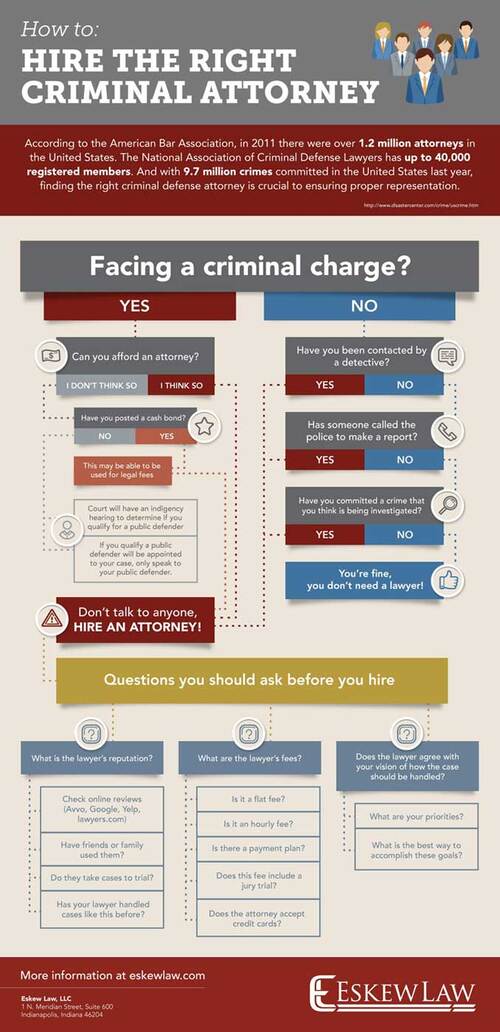Common Myths Concerning Criminal Defense: Debunking Misconceptions
Common Myths Concerning Criminal Defense: Debunking Misconceptions
Blog Article
Content Writer-Kearns Byrd
You have actually most likely listened to the misconception that if you're charged with a crime, you need to be guilty, or that remaining silent methods you're concealing something. These extensive ideas not only misshape public perception however can additionally affect the end results of lawful procedures. It's essential to peel off back the layers of false impression to recognize real nature of criminal defense and the civil liberties it shields. Suppose you recognized that these misconceptions could be taking apart the very foundations of justice? Join the conversation and check out how debunking these misconceptions is vital for making sure fairness in our lawful system.
Myth: All Offenders Are Guilty
Commonly, individuals mistakenly believe that if someone is charged with a criminal offense, they need to be guilty. You could presume that the legal system is infallible, yet that's much from the reality. Costs can come from misconceptions, incorrect identifications, or inadequate proof. It's crucial to remember that in the eyes of the law, you're innocent until proven guilty.
This assumption of virtue is the bedrock of the criminal justice system. It ensures that the burden of proof lies with the prosecution, not you. They should establish beyond a reasonable uncertainty that you dedicated the criminal offense. This high common shields people from wrongful sentences, guaranteeing that nobody is punished based on presumptions or weak evidence.
In addition, being billed doesn't imply completion of the road for you. You can defend on your own in court. This is where a proficient defense lawyer enters into play. They can challenge the prosecution's instance, existing counter-evidence, and advocate on your behalf.
The complexity of legal proceedings typically needs professional navigation to guard your rights and achieve a reasonable result.
Misconception: Silence Equals Admission
Lots of believe that if you select to continue to be silent when charged of a criminal activity, you're essentially admitting guilt. However, this couldn't be further from the fact. Your right to continue to be quiet is protected under the Fifth Change to stay clear of self-incrimination. It's a legal guard, not a sign of guilt.
When you're silent, you're really exercising an essential right. This prevents you from saying something that may unintentionally harm your defense. Remember, in the warm of the moment, it's simple to get baffled or speak inaccurately. Police can translate your words in methods you didn't mean.
By staying quiet, you provide your legal representative the very best opportunity to safeguard you properly, without the problem of misinterpreted statements.
Additionally, it's the prosecution's job to prove you're guilty past an affordable question. Your silence can't be used as evidence of regret. In fact, jurors are instructed not to translate silence as an admission of shame.
Misconception: Public Defenders Are Inefficient
The false impression that public protectors are inefficient persists, yet it's crucial to understand their critical duty in the justice system. Many believe that due to the fact that public protectors are typically overwhelmed with situations, they can't provide top quality defense. Nevertheless, this overlooks the depth of their dedication and expertise.
Public protectors are totally accredited attorneys that've picked to specialize in criminal law. They're as qualified as exclusive attorneys and usually more seasoned in trial work due to the quantity of cases they deal with. You could assume they're much less inspired because they don't pick their clients, but actually, they're deeply committed to the suitables of justice and equality.
It is necessary to remember that all lawyers, whether public or exclusive, face obstacles and restraints. Public protectors commonly deal with fewer sources and under more pressure. Yet, Learn Alot more show resilience and creative thinking in their protection approaches.
Their duty isn't just a job; it's an objective to make sure that every person, no matter earnings, obtains a fair test.
Conclusion
You could think if somebody's billed, they need to be guilty, yet that's not exactly how our system works. Choosing to stay quiet doesn't suggest you're admitting anything; it's just wise protection. And do not undervalue public defenders; they're committed professionals dedicated to justice. Remember, everybody deserves a fair trial and experienced depiction-- these are essential civil liberties. Let's shed these misconceptions and see the legal system wherefore it absolutely is: a place where justice is sought, not just punishment gave.
